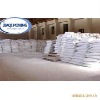- Oxide[1]
- Pigment[1]
- Sand[10]
- Marble[10]
- Other Timber[1]
- Tombstones and Monuments[1]
- Charcoal[1]
- Coke Fuel[10]
- Water Treatment[5]
- Abrasives[10]
- Carbon[1]
- Graphite Electrodes[3]
- Graphite Powder[4]
- Other Graphite Products[1]
- Silicon Ingots[1]
- Other Iron[10]
- Bentonite[10]
- Dolomite[10]
- Mica[10]
- Other Non-Metallic Mineral Deposit[2]
- Perlite[10]
- Talc[10]
- Bauxite Ore[10]
- Other Ore[10]
- Refractory[1]
- Contact Person : Ms. Luo MingXia
- Company Name : Lingshou County Jiaqi Mineral Processing Factory
- Tel : 86-0311-80817860
- Fax : 86-0311-83626922
- Address : Hebei,Shijiazhuang,Yanchuan Industry Zone, Lingshou County
- Country/Region : China
- Zip : 050000
Related Product Searches:High Quality Sodium Bentonite,High Quality,high grade bentonite, bentonite granular,bentonite
Bentonite is an absorbent aluminium phyllosilicate, in general, impure clay consisting mostly of montmorillonite. There are different types of bentonites, and their names depend on the dominant elements, such as potassium (K), sodium (Na), calcium (Ca), and aluminum (Al). As noted in several places in the geologic literature, there are some nomenclatorial problems with the classification of bentonite clays. Bentonite usually forms from weathering of volcanic ash, most often in the presence of water. However, the term bentonite, as well as a similar clay called tonstein, has been used for clay beds of uncertain origin. For industrial purposes, two main classes of bentonite exist: sodium and calcium bentonite. In stratigraphy and tephrochronology, completely devitrified (weathered volcanic glass) ash-fall beds are commonly referred to as K-bentonites when the dominant clay species is illite. Other common clay species, and sometimes dominant, are montmorillonite and kaolinite. Kaolinite-dominated clays are commonly referred to as tonsteins and are typically associated with coal.
Sodium bentonite expands when wet, absorbing as much as several times its dry mass in water. Because of its excellent colloidal properties,it is often used in drilling mud for oil and gas wells and for geotechnical and environmental investigations.
The property of swelling also makes sodium bentonite useful as a sealant, especially for the sealing of subsurface disposal systems for spent nuclear fuel and for quarantining metal pollutants of groundwater. Similar uses include making slurry walls, waterproofing of below-grade walls, and forming other impermeable barriers, e.g., to seal off the annulus of a water well, to plug old wells, or to line the base of landfills to prevent migration of leachate. It is also used to form a barrier around newly planted trees to constrain root growth so as to prevent damage to nearby pipes, footpaths and other infrastructure.
Sodium bentonite can also be "sandwiched" between synthetic materials to create geo-synthetic clay liners (GCL) for the aforementioned purposes. This technique allows for more convenient transport and installation, and it greatly reduces the volume of sodium bentonite required.
Various surface modifications to sodium bentonite improve some rheological or sealing performance in geoenviromental applications, for example, the addition of polymers.
| Chemical Composition | |
| SiO2 | 70% |
| Al2O3 | 16% |
| Fe2O3 | 2.3% |
| FeO | 0.7% |
| CaO | 0.9% |
| MgO | 1.8% |
| k2O | 0.7% |
| Physical property | |
| montmorillonite content | 70-72% |
| Moisture | 10%MAX |
| PH Value | 9-10 |
| Wet Strength | >0.5kg/cm2 |
| Dry Strength | >3.3kg/cm2 |
Applications :
• In drilling mud for oil and gas wells • For geotechnical and environmental investigations• Useful as a sealant, especially for the sealing of subsurface disposal systems for spent nuclear fuel and for quarantining metal pollutants of groundwater• For making slurry walls• Waterproofing of below-grade walls • Forming impermeable barriers like to seal off the annulus of a water well• To plug old wells• As a liner in the base of landfills to prevent migration of leachate
If you have any problems,please feel free to contact us.
>
High Quality Sodium Bentonite












